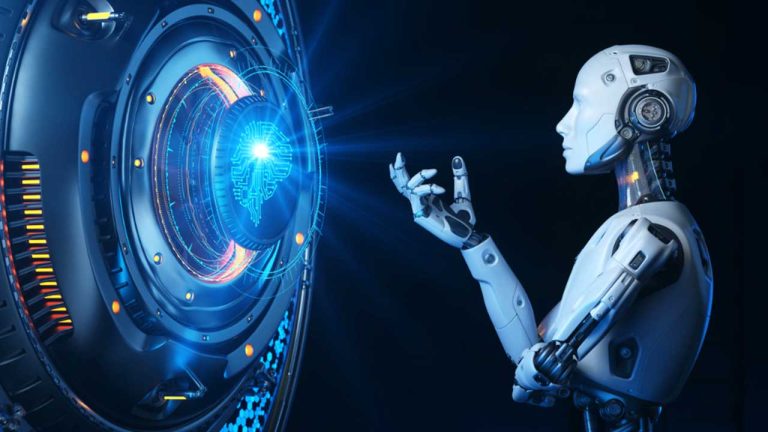“Should we robotize away all the jobs? Should we try to begin a non-human mind that might eventually replace us?” These are some popular issues that were posed last month in an open letter by the non-profit Future of Life Institute. It asked for a six-month “pause” on the development of the most sophisticated types of artificial intelligence and was signed by industry luminaries such as Elon Musk. It is the most visible illustration yet of how fast progress in artificial intelligence has fueled concern about the technology’s potential risks.
According to Britannica, “Artificial intelligence is the ability of a computer or a robot controlled by a computer to do tasks that are usually done by humans because they require human intelligence and discernment.”
One of the main methods AI is influencing culture is via media creation and consumption. AI-powered algorithms are rapidly being utilized to create a wide range of material, including news
articles, social media postings, music, and videos. This has the potential to democratize the media landscape by allowing a broader spectrum of people and organizations to create and distribute
information. However, there are fears that AI-generated information would reinforce existing prejudices and preconceptions and will be used to manipulate public opinion. Another way AI is influencing culture is through its impact on social interactions and relations. As machines and algorithms improve at comprehending and answering to human emotions, there may be a shift in the way we interact with one another. Consequently, as AI communication tools become more advanced, they might be used to replace face-to-face interactions, which can have a negative effect on the economy.
Artificial intelligence has become big in the minds of the tiny but intriguing (and frequently talked about) group of academics who have committed themselves to the study of existential risk during
the last two decades. Indeed, it appeared to be at the heart of their worries on several occasions. A world populated by things that think and act faster than people and their institutions and whose goals are not aligned with those of humanity would be a frightening place. People in and around the area began to claim that there was a “non-zero” risk that the emergence of superhuman AIs would lead to human extinction. The remarkable increase in the capabilities of large language models (LLMs), “foundational” models, and related types of “generative” AI has driven these existential risk talks into the public consciousness and ministers’ inboxes.
Even though some people don’t recognize it, artificial intelligence is extremely present in our lives. Most students, teachers, and workers have used ChatGPT or heard of it. ChatGPT is a generative AI that processes requests and formulates responses. OpenAI, a research company founded by a group of entrepreneurs and researchers, including Elon Musk and Sam Altman, in 2015, created and launched ChatGPT in November 2022. ChatGPT uses deep learning to produce human-like texts, responses, questions, and everything inside its capacity. Users can vary from simple to more complex questions such as, “What is the meaning of life?” or “Can you write a 2,000 word essay about the Cold War?” ChatGPT seems like the greatest invention in the world; however, it does worry specialists. Due to its ability to generate human-like responses, there are worries that people will stop developing their own work and copy ChatGPT instead. Students can easily ask the machine to do their homework, write their essays or conclude their projects. Most teachers have a great fear of ChatGPT getting in the way of their discipline and emphasize the consequences a student will have if they use the tool. Another fear ChatGPT brings to the public is their capacity to occupy jobs and leave humans unemployed. Even though it might harm a lot of aspects of our lives, AI is an unavoidable tool that will only progress as time goes by. So the essential question everyone should analyze is “How are we going to learn to live with ChatGPT instead of trying to
avoid it?”
These models have the potential to change humans’ relationships with computers, knowledge, and even themselves. Artificial intelligence supporters claim that technology can tackle major challenges such as generating new pharmaceuticals, building new materials to combat climate change, and unraveling the complexity of fusion power. Others believe that the fact that ais’ skills are already outpacing their creators’ comprehension threatens to bring to life the science-fiction catastrophe scenario of the machine that outwits its creator, frequently with disastrous repercussions. This seething blend of enthusiasm and terror makes weighing the opportunities and hazards difficult. However, lessons may be drawn from other businesses and previous technology transitions. So, what has changed to make artificial intelligence so much more capable? How terrified should you be?
Sources:
1. “Artificial Intelligence.” Encyclopædia Britannica, 30 May 2023,
www.britannica.com/technology/artificial-intelligence.
2. “How to worry wisely about artificial intelligence.” The Economist, 20 April 2023,
https://www.economist.com/leaders/2023/04/20/how-to-worry-wisely-about-artificial-intelligence
?frsc=dg%7Ce.
3. “How AI could change computing, culture and the course of history.” The Economist, 20 April
2023,
https://www.economist.com/essay/2023/04/20/how-ai-could-change-computing-culture-and-the-c
ourse-of-history?frsc=dg%7Ce.
4. Eliason, Kenny, and Step Guide. “The Cultural Impact of Artificial Intelligence! | by Aarafat
Islam.” Medium,
https://medium.com/@aarafat27/the-cultural-impact-of-artificial-intelligence-d6631425574d.
5. TechTarget. “ChatGPT.” TechTarget, TechTarget, 30 May 2023,
https://www.techtarget.com/whatis/definition/ChatGPT



